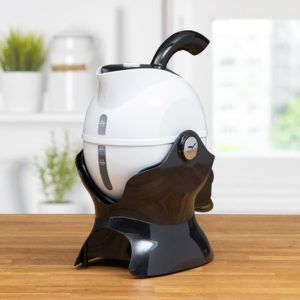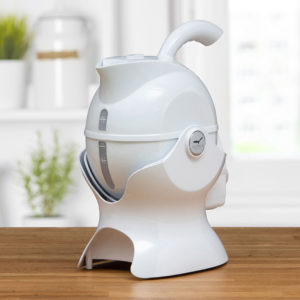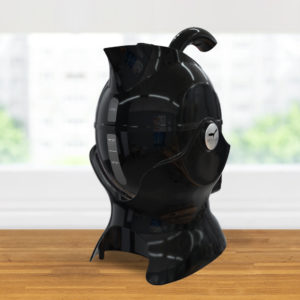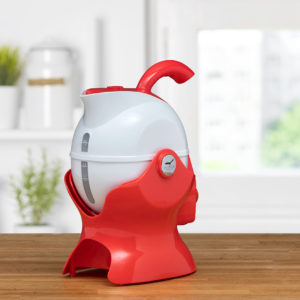We are in that time of year where its cooler outside and that can mean hot drinks, warmer clothes and unfortunately for some, a flare up of their arthritis symptoms. Those living with arthritis know that it doesn’t do too well in the winter. It was Dr. Elinor Mody, M.D. in Boston Hospital who put it best: ”The fluid in your joints is like the oil in your car. It doesn’t move as well in cold weather”.
Arthritis is more often associated with pain and stiffness. But, it can also affect your general health, sleep, weight, emotional wellbeing and your everyday life. When asked, many still say that arthritis fatigue is still one of their biggest challenges.
What is Arthritis Fatigue?
It is an extreme and sometimes overwhelming physical and mental tiredness that won’t improve with rest or sleep. It can affect your motivation and ability to concentrate (brain fog). For some, it can affect their emotional wellbeing and have them feel more irritable and depressed.
Fatigue is unpredictable and it can strike suddenly and at any time of the day. For those with fatigue, they often say it’s similar to having the flu as symptoms can be:
- Exhaustion
- Feeling like your energy has been drained away
- Your body and limbs feel heavy and difficult to move
It is more extreme than simple tiredness and can last from 30 minutes to several days. Luckily, there are ways in which you can manage arthritis fatigue. Keep reading for more.
What Causes Arthritis Fatigue?
In a nutshell, fatigue is your bodies reaction to a build up of stress – this can be a mixture of experiences, health issues or emotions. Usually there isn’t a single reason for fatigue, it tends to be causes by a number of contributing factors. A few examples could be:
- Inflammation – this causes redness, heat and swelling as your body tries to heal an infection or injury.
- Muscle weakness – this can be caused by pain and in-activity.
- Lack of sleep.
- Overdoing it – remember to pace yourself and not to be an all or nothing kind of person.
- Poor diet – by not eating or drinking enough – it can mean that your body does not have enough energy.
How Can I Manage Arthritis Fatigue?
The great news is that fatigue can be managed and you can engage with your day-to-day tasks and activities. The trick is to plan your time wisely so that you can spread your energy levels over the course of the day. It’s also important to ensure that you get enough exercise and have a healthy balanced diet. Let’s break it up:
Increasing Your Amount of Exercise
Keeping active will help to increase your fitness levels and ultimately strengthen your muscles. Weak muscles use more energy so, sadly, doing too little can actually be as damaging as doing too much.
Exercise will also help you to increase your circulation and improve the health of vital organs such as your lungs and heart. This can also help give you more energy.
We understand that recommending exercise as a way to manage fatigue can sound a little silly. While you may find it tiring at first, simply adding 10-15 intervals at a time can help increase your level of stamina.
Remember, it’s important to give yourself time to relax and recover after any exercise.
Getting a Good Nights Sleep
Getting a good nights sleep requires healthy sleep habits and this can take time to perfect. So, if it’s possible, try and avoid napping throughout the day. You ideally need to be awake for 16 hours in order to have a good nights sleep. For example getting up at 7 am and going to bed at 11pm could be an idea to try.
When going to bed, try and keep your bedroom:
- Dark
- Comfortable
- Quiet
- Remove electronics (TV, Phones, tablets, radio)
Avoiding caffeine and alcohol before bed can also help you have a good nights sleep. Try and create a routine you will stick by and you will soon find yourself waking up refreshed.
Think About Stress Busters
A lot of stress and anxiety can cause fatigue (think of it as a trigger) and sadly, fatigue can lead to increased feelings of stress and anxiety.
Procrastination is the enemy here. If there is something you are worried may become stressful or even overwhelming it’s best to tackle it sooner. Think about how you can change the situation without making you anxious. Is there a friend or family member who could help?
Try breaking the problem down into achievable manageable bite size pieces and you will feel better each time you accomplish the task.
Don’t forget, it’s important to give yourself time to relax and unwind. Use something you like as a distraction. Whether it be going for a walk, taking a bath, reading or even time to disconnect over a cuppa.
Try Assistive Living Devices
Using specific daily living aids or assistive technology can help you cut down on the energy you use throughout the day. An Occupational Therapist will be able to guide you towards the best assistive products for you. Think of where you struggle or perhaps find areas where your energy gets zapped. We have a few ideas that could help:
- The Uccello Kettle – there can be a lot of energy taken when it comes to making a cup of tea. There is a lot of heavy lifting involved. Thankfully, with the Uccello Kettle, you can fill it up easily with a small jug and when it comes to making the tea there is no lifting involved. Thanks to it’s tilt-to-pour action, you can literally use 1 finger to pour. Saying goodbye to any lifting, balancing and straining for a cuppa.
- The Uccello Grip Mat – Trying to open lids and jars not only hurts the hands but it can take a lot out of you (especially if they are particularly stubborn). The Grip Mat in non-slip and gives you added grip on both wet and dry surfaces.
- The Muggi Cup Holder – Trapsing back and forth from the kettle to the table or the living room can zap a lot of energy so why not use the Muggi to carry your tea, biscuits, phone and what ever else tickles your fancy? It really is the perfect daily living aid.













Leave a Comment